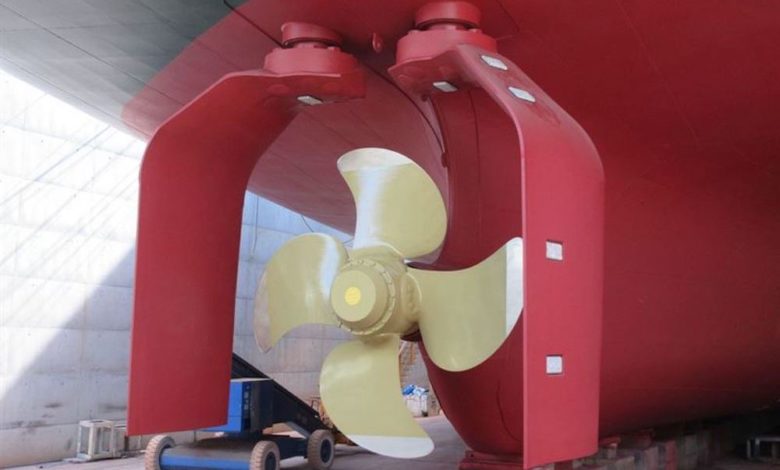 [[{“value”:”
[[{“value”:”

Demand for advanced propeller retrofits and energy-saving devices (ESDs) has nearly quadrupled since 2020 to enhance energy efficiency to meet tightening emissions regulations.
However, according to a new report from British class society Lloyd’s Register (LR), while high-efficiency propellers can deliver fuel savings of between 3-10%, and popular devices such as rudder bulbs can achieve 3.5% reductions, only 1.74% of the global fleet currently features the rudder bulb, the most popular device, with the report making a strong case for retrofitting, giving clients an idea of payback times for their investments (see below).
The orderbook tells a different story, with 8.42% of vessels on order choosing to install ESDs. The proportion of vessels on the orderbook fitted with a particular device is between two and six times higher than for those vessels already in service.
In total, more than 10,000 vessels in the existing fleet and orderbook feature some form of propulsion energy-saving technology from newbuild. Added to this are at least a further 1,400 vessels that have had ESDs retrofitted since 2020. The number of installations on existing vessels is growing, showing nearly four-fold growth since 2020, with close to 1,500 vessels contracted to be fitted with devices by the end of 2024.
The report also reveals a trend towards retrofitting newer vessels, with more than one-third of 2024 retrofits performed on ships less than ten years old, compared to just 16% in 2020. By 2024, 12% of retrofits were performed on vessels built less than six years ago, a category that saw no retrofits in 2020.
Regulatory pressure is identified as the primary catalyst driving this surge in retrofits. LR’s analysis projects that a 20% fuel consumption reduction could save an aframax tanker operator nearly $3m over 10 years through reduced exposure to European regulations alone.
Claudene Sharp-Patel, LR’s global technical director, said: “Our research reveals that propeller and ESD retrofits offer ship operators a proven pathway to significant fuel savings, extended regulatory compliance, and meaningful emissions reductions.”
Speaking with Splash last week, Nick Brown, the CEO of LR, said that in the wake of the most recent Marine Environment Protection Committee meeting at the International Maritime Organization and the draft of an ambitious Net Zero Framework, this potential new legislation had “turbocharged” the business case to modify existing ships.
“It’s suddenly made the return on investment on those investments in existing ships very, very obvious,” Brown said of the proposed Net Zero Framework.
British consultancy Maritime Strategies International (MSI) has given an early indication of the impact that the Net Zero Framework will have on the bunker market.
By extending the annual fuel consumption estimates calculated for 2024 through to 2035, and applying MSI’s forecasts for bunker prices, it is possible to project the future fuel costs for conventionally-fuelled ships alongside the projected IMO penalties. By this approach, the IMO’s penalties would be equivalent to an 82% premium on top of the fleet bunker costs by 2035 – almost $100bn for the 30,000 ships tracked in MSI’s database.

The post LR report outlines clear case for shipowners to retrofit appeared first on Energy News Beat.
“}]]

